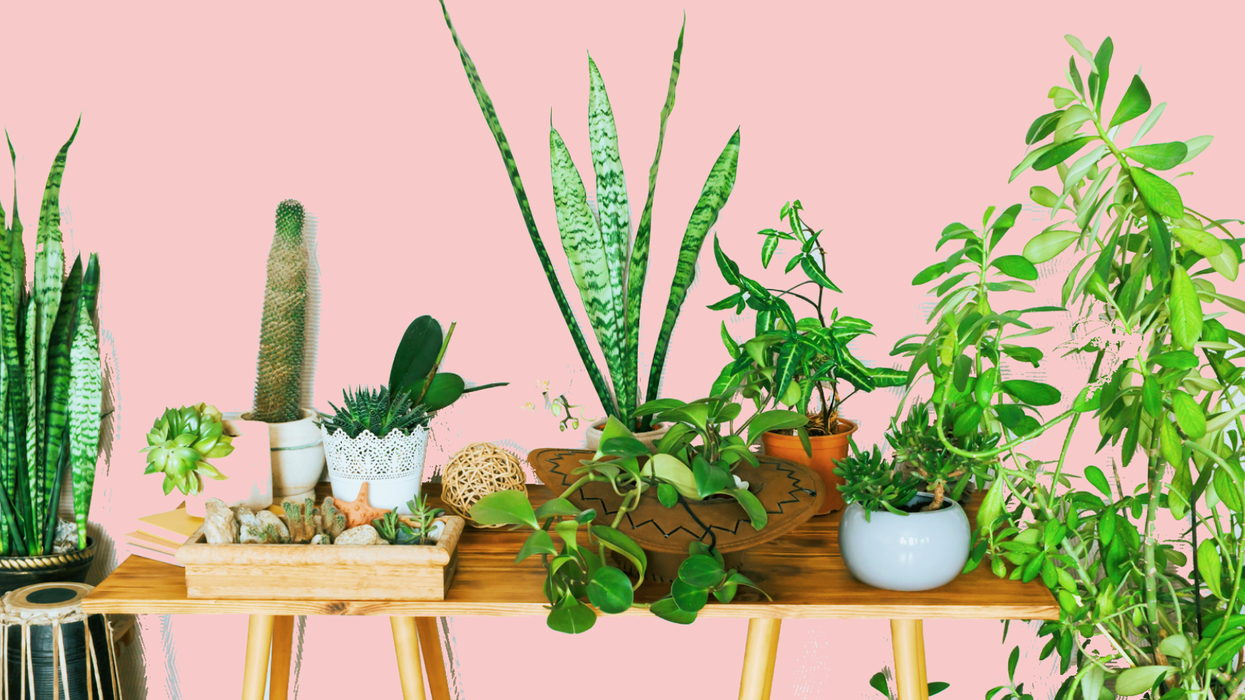Louis Staples
Jan 30, 2020

iStock
Millennials love house plants. Like, seriously – they’re obsessed!
Whether it’s getting lots of likes on Instagram or distracting ourselves from the fact that we’ll probably live in a rented cupboard forever, plants are a perfect antidote.
According to the Royal Horticultural Society (RHS), the sale of house plants increased 60 per cent last year. Almost 80 per cent of 16 to 24 year-olds own at least one houseplant and a fifth of owners bought them to boost their health and wellbeing.
Now it’s been announced that there’s even going to be a house plant emoji, which basically solidifies the house plant’s place in digital culture.
But are house plants actually all that green?
This is the question that the BBC’s Hazel Shearing has investigated – with some surprising results. It turns out that"plant miles", plastic pots and pesticides all add up and that house plants are slightly more problematic than you’d imagine.
Here's why.
1.Plant miles are a thing
The plant industry often relies on plants that have been shipped in from other places. Holland is a popular plant growing destination and most orchids are grown in Indonesia. Kenya and Zimbabwe are also big exporters of plants.
Fay Kenworthy, co-founder of PlantSwap, a Sheffield-based community initiative that encourages people to trade plants locally, told the BBC:
As many plants are brought in from overseas, their transportation represents a significant ecological footprint.
You may have decided to reduce your international travel to protect the environment but your plants are still shipping across the world.
2.Plastic is not fantastic
Plastic pots are subtly quite bad from a green perspective. According to the Waste & Resources Action Programme (WRAP), just 10 per cent of local authorities in the UK recycle them. Many are made from “black plastic” – which isn’t often detected by sorting machines – and lots of others are deemed “contaminated”.
3. Problematic peat
What plants are grown in also factors into their environmental impact. Peat (an accumulation of partially decayed vegetation or organic matter) is used in a lot of composts, which is bad because it can take thousands of years to form naturally. Dr Dines, of British conservation charity Plantlife, told Shearing:
Commercial extraction can remove over 500 years-worth of growth in a single year.
Eek.
4. Houseplants don’t clear the air, sorry.
Everyone’s always talking about how rainforests are the “lungs” of the Earth, so plants must be similar, right?
Nah.
It turns out that plants actually remove CO2 from rooms and can make air quality worse. PhD research carried out by Curtis Gubb, an environmental consultant, found that care is key:
The amount the plant is watered affects its ability to function and remove CO2, in the same way as with people – if you're dehydrated or have drunk too much water you will not function as well.
But it's not all bad, because flowers like lilies have a more positive effect on air quality.
So should you ditch the plants?
Ultimately, everything we do has an environmental impact and there are ways to shop for house plants responsibly. As James Wong writes in The Guardian, it's important to put plant consumption into perspective:
Even if you have a plant collection as massive as mine (more than 500 and counting), that is nowhere near as many plants as one might have in an outdoor garden. Nowhere near as much compost, fertiliser, water, tools or car trips either. Indoor gardening involves a tiny fraction of all these inputs.
So if you’re prepared to get picky with your pots and become a soil connoisseur, you shouldn’t worry. Which is lucky because, green or not, house plants aren’t going anywhere.
Top 100
The Conversation (0)













